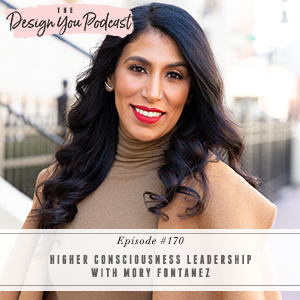
Do you feel disconnected as the leader of a business? Are you working in a toxic environment even though you aren’t entirely sure why? Today’s guest may have just the answers to what’s really going on, and I know you’re going to find this episode valuable.
Mory Fontanez is an Executive Purpose Coach and the Founder and CEO of 822 Group. After a successful career in corporate America, she observed that many companies were operating without a true sense of purpose because their leaders didn’t understand their higher purpose. She now helps leaders reconnect with their higher calling and get into alignment so that they can create purpose-driven brands and businesses that connect with their employees and customers and do better.
Tune in this week as we discuss the importance of being vulnerable in your business and how the fear of cancel culture could be making you show up less authentically. We have a responsibility to show up in an honest way, and doing the deeper work is crucial. Mory shows us how to be truly vulnerable in a way that a leader should, and how to have the courage to listen to your inner calling.
If you want help creating a business with thriving revenue streams so that you can design the life you really want this year, now is your chance! We’re going to be opening the doors to the Design You Coaching Program really soon, get on our waitlist now!





